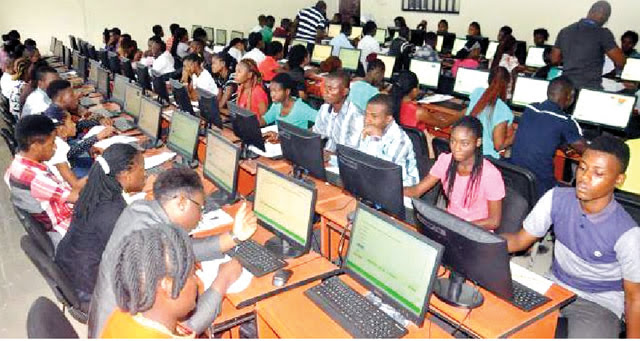
The recent policy re-introduced by JAMB, setting 18 years as the minimum age for admission into tertiary institutions, while perhaps well-intentioned, raises concerns regarding its relevance in today’s rapidly advancing world. Even though the policy is not new, and as we navigate the complexities of the 21st century, a time dominated by technology and fast-paced learning, the policy seems outdated and unrealistic. While this age restriction may have been sustainable in the past, when educational structures and societal norms were vastly different, it is no longer feasible to impose such limitations on our children, especially considering their evolving needs and capabilities.
The Case for 16 Years as the Ideal Admission Age:
We live in a world where children are growing up in a technologically enriched environment. Today’s students are exposed to information, learning tools, and global standards of education at an early age. With access to online resources, computer-based learning, and advanced educational systems, students are able to acquire knowledge more rapidly than in previous generations. It is common to see students excelling academically and intellectually at younger ages, a result to the evolution of our educational systems and resources.
Therefore, insisting on an 18-year age limit for tertiary education admission feels restrictive and ignores the potential of many talented and academically advanced students. By setting a rigid age benchmark, we inadvertently stifle the progress of students who are ready, capable, and willing to take on the challenges of higher education earlier.
In my opinion, 16 years is a more reasonable and realistic age for admission into tertiary institutions. At 16, most students have completed their secondary education, and many are mentally and emotionally prepared to pursue higher learning.
Additionally, it is crucial to address the age at which students complete secondary school. I propose that 15 years should be the benchmark age to write the Senior Secondary Certificate Examination (SSCE). By the age of 15, students are typically in their final year of secondary school and are mature enough to take on the responsibility of these critical exams. This age is also suitable as it allows students who perform well to proceed to tertiary education at 16 without unnecessary delays.
While the above suggestions are rooted in ensuring that our students are not held back by age-related policies, there is also a need to regulate the practices of some private schools. In recent years, many private schools have been pushing students under the age of 15 to sit for SSCE, often driven by financial gains and the desire to showcase high exam pass rates. However, this practice is not in the best interest of the students.
Forcing underage students to sit for SSCE before they are emotionally and academically ready can have adverse effects. These students may struggle with the pressure of exams, miss out on the developmental growth that comes with age, and face challenges in higher education later on. It is important for the government to take action by setting a strict policy that prevents students under the age of 15 from taking SSCE. Schools that violate this rule should be sanctioned accordingly to protect the welfare and future of the students.
In conclusion, while the intention behind JAMB’s 18-year age policy may be to ensure maturity and readiness, it fails to recognize the changing realities of our world. Today’s students are learning and excelling at younger ages, and we must adapt our educational policies to reflect this progress. Setting the admission age to 16 is both reasonable and sustainable for the continued development of our youth and our nation.
Furthermore, regulating the age for writing SSCE to 15 years and ensuring that no student under this age is allowed to take the exam will maintain a balance between academic readiness and developmental growth. This will prevent schools from exploiting students and ensure that our education system remains fair, structured, and focused on the best outcomes for the students themselves.
It is time we re-evaluate these policies in the context of modern realities, embrace the talents of our younger generation, and create a system that truly nurtures their potential.
‘Kayode Ajani
Social Activist & Public Affairs Analyst.
ajanikayode2@gmail.com
08103260476
Image credit Punch Newspapers



